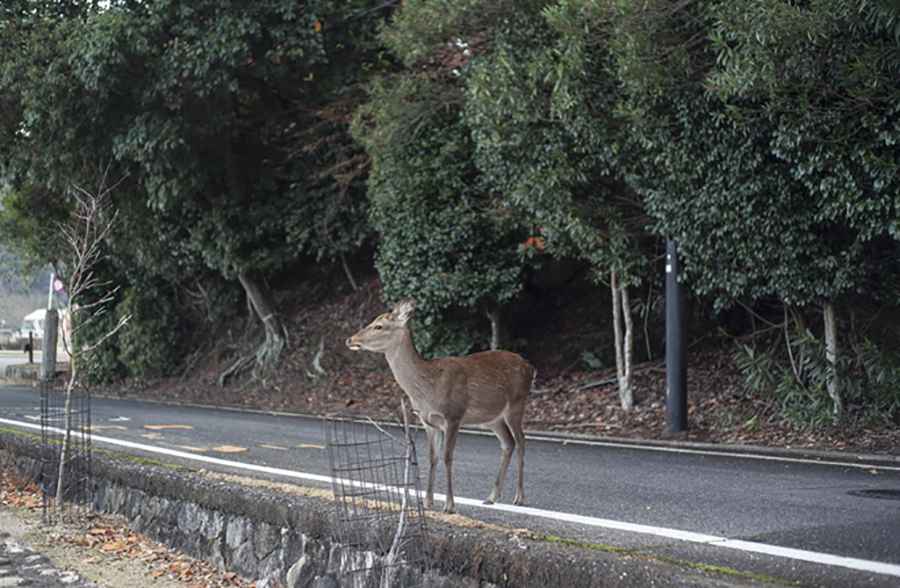Animal Crashes: Why the Risk is Rising and How to Be Prepared
Wildfires, tornadoes, hurricanes, and other increasingly common disasters impact home insurance. These events cause more homeowners to file claims for the resulting damage. But these same weather scenarios can impact auto insurance. This information may surprise you. Adverse weather can lead to an increase in vehicle versus animal collisions.

We'll explain how natural disasters affect animal activity and vehicle versus wildlife collisions, and the types of insurance coverage you should have to protect your vehicle. We'll also provide a guide on how to try to avoid animal collisions as well as the steps to take if it does happen.
Natural Disasters and the Increased Risk of Hitting Wildlife
Animals have routines, and disruptions in those routines can make animals change patterns. The increased environmental stress can lead to them being less vigilant and less likely to avoid dangerous situations.
Changing Human Behavior
During the COVID-19 pandemic, there were far fewer vehicles on the road than there had been in previous months. But despite an initial dip in vehicle versus wildlife crash statistics, after a few weeks, those collisions surged higher than pre-pandemic levels.
Many experts believe the increased risk of hitting an animal indicates that the lower traffic volume caused animals to spend more time on the roadway. When animals hang out on the roads, they’re more likely to be hit.
This example demonstrates how interconnected the world is, and how a change in one area will lead to a change in another.
Elimination of Habitat
It only makes sense that if a forest fire wipes out the habitat for thousands of deer and other animals, they’ll have to change their routines to find a new home. Deer that might have learned to take care of themselves away from traffic could be forced to navigate busy roadways to find adequate food, water, and shelter.
Flooding can also eliminate wildlife habitats. It could cause animals to change their behaviors. Some roads flood periodically. Regular flooding probably won’t disrupt animal behavior. But unusual flooding can put stress on wildlife. The stress could put them at great risk of getting hit on the road.
Natural Cycles of Life
During the fall, most animals in the deer family enter their rut, or mating season. During this period, the males focus on finding mates and are more likely to be on the move and following the scent of nearby females.
Because of this natural cycle and the fact that the days get shorter during the fall, more animals are hit than during the other seasons.
Insurance for Hitting an Animal
If you look at a list of insurance coverage types, you’ll probably notice the terms liability, collision, and comprehensive. If you don’t already know, you might assume that collision coverage would be the kind of insurance you need for a collision with an animal.
Collision coverage does not cover damage from hitting a wild animal, though. Instead, you’ll need comprehensive coverage, which also covers damage from natural causes, vandalism, and theft.
Saving on Comprehensive Insurance
Most people who purchase comprehensive insurance also buy collision coverage. In fact, it’s so common to buy them together, that the combination has its own name: full coverage.
One way to save on full coverage is to increase your deductible. The deductible is the amount of money you’ll have to pay toward the repair or replacement of your vehicle following a covered damaging event. If your deductible is higher, you reduce the insurance company’s risk and you’ll get lower premiums.
Before you increase your deductible, though, make sure you have the money set aside to pay it.
Another way to save is to look for discounts that the insurance company offers that you could be eligible for.
Deciding If It’s Worth Filing a Claim
If you hit a deer and the damage is minimal, it might not be worth it to file a claim. Once you file a claim, your insurance company will view you as a higher risk and you could pay higher premiums for about three years.
So consider how much the repair would cost and decide if the wiser financial move is to file a claim or pay for repairs yourself.
Avoiding Collisions With Wildlife
First, you’ll need to expect to see animals on the road. When you expect to see them, you’ll pay more attention to spotting them. If you can see a deer walking toward the road, you can gauge if you need to slow down to avoid a crash or if you can continue onward without concern.
There are several other steps you can take to reduce your risk of hitting a deer or other wildlife.
Clean Your Headlights
Dirty headlights won’t illuminate the road like they’re designed to. And if you can’t see the road, you can see what’s on the road. Since there’s a higher risk of hitting an animal at night than during the day, it’s even more important that your headlights are as clear as possible so you can maximize your visibility.
Maintain Your Brakes
If you’re driving and have to use emergency braking, you’ll appreciate brakes that work to their full potential. If your brakes are wearing out, you might not be able to stop in time to avoid a collision.
Regular brake maintenance should be part of your trip preparation when you’re planning for a major adventure, but you should pay attention to any changes in braking during your everyday drives as well, and get problems fixed immediately.
Inflate Your Tires Properly
If your tires are inflated according to the manufacturer's recommendations, they’ll have better traction and more even wear than tires that have too little air pressure.
Slow Down
When you’re trying to get somewhere, you might tend to drive more quickly than is safe. Slowing down, especially at night, can help you see an animal with time to react and stop in time.
With more animals being hit, you need to pay attention to what’s happening around you and how it could affect wildlife. Remember to look for animals so you’ll be more likely to see them and avoid a collision.
 | Melanie Musson writes and researches for the auto insurance comparison site, BuyAutoInsurance.org. She’s passionate about helping others understand the critical role insurance plays in protecting their financial stability. |